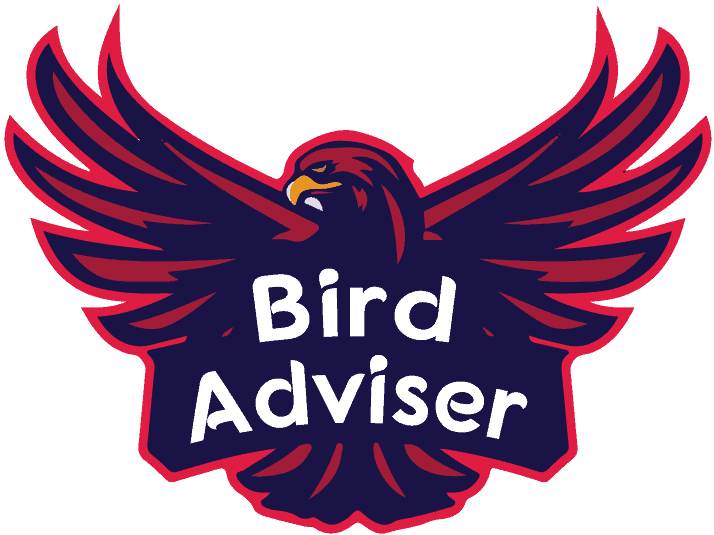Well, you must have enjoyed feeding birds in winter? On those bleak winter days, it may be a source of delight.
When the winter is done, though, there is a lot of confusion regarding when to discontinue feeding the birds.
A common query is “In the summer, when should you stop feeding birds?” We’ll learn everything about When to Stop Feeding Birds in the summer in this post.
Should I Stop Feeding Birds in Summer?
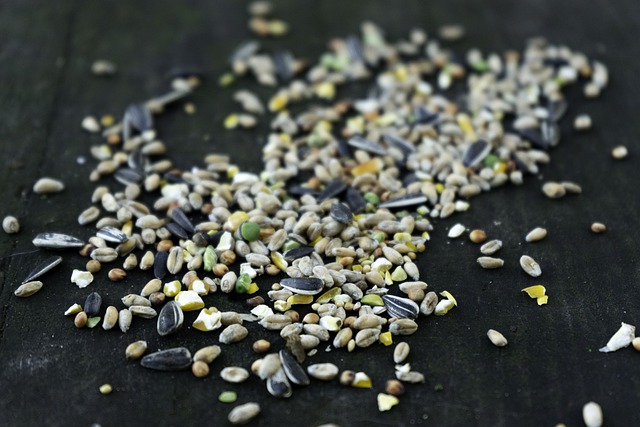
In the spring and summer, when there is plenty of food, some people choose not to feed birds. However, if you keep a few things in mind, putting your feeders up all year is not a problem: Feeders should not be left up throughout the summer if bears reside nearby.
Suet left out in the heat can soften and spoil the plumage of birds, or it might get rancid. In the summer, raw or homemade suet should be avoided.
Some suet producers claim that their blocks can resist temperatures of over 100 degrees without melting; nonetheless, if exceptionally high temperatures continue, the suet may get rancid quickly.
In the heat, bird food deteriorates more quickly, especially if it becomes wet. It’s possible that the volume of seed in your feeder isn’t moving because it’s rotten, and birds are avoiding it.
You may avoid this by changing your food on a regular basis or by not filling the feeders as full as they should be so that the birds empty them more quickly.
Birds may not visit your feeder if the weather is really hot. Consider placing it in a shaded area and providing it with a water supply.
When it comes to the health of the birds in your yard, keep in mind that feeding damaged food will most likely cause the birds to flee.
Birds, in general, are robust, resourceful creatures that would not eat rotten suet any more than you, or I would eat green meat in a sandwich.
When to Stop Feeding Birds in Summer?
Summer is not the time to stop feeding birds. If you reside in a bear country, there is one exception. When bears emerge from their winter hibernation, stop feeding birds.
But, of course, you are free to quit feeding birds whenever you choose. When the birds finish spring migration is done, you may stop feeding the birds.
When all that’s left at your feeders are summer House Finches and House Sparrows, you may stop feeding them.
In the summer, you don’t have to stop feeding birds.
There is no reason for most individuals who feed birds to stop feeding them at the end of the winter. New seed-eating birds visit your backyard feeder throughout the spring migration and summer breeding season. The variety of birds you can attract rises considerably if you alter the sort of food you provide them.
The bright red House Finches, with their energetic songs, may be seen all throughout the United States in the summer. The brightest yellow and black summer plumage of American Goldfinches attracts them to your feeders.
In the east, colorful Rose-breasted Grosbeaks and Black-headed Grosbeaks will visit your feeders, while in the west, Black-headed Grosbeaks will. In the East, Northern Cardinals are frequent feeders all year.
Bear Country
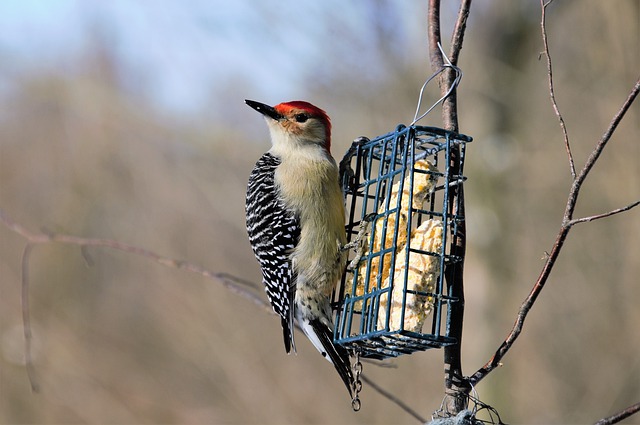
If you live in bear country, don’t feed the birds in the summer.
However, there is one compelling reason to avoid feeding birds as early as early spring: bears! Maine, Minnesota, and Yellowstone spring to mind when I think about the bear country.
However, bears can be seen in Upstate New York. Bears may be found in Florida. Bears may be found all around California, including within 100 miles of Los Angeles!
Even if you reside in one of these places, there’s a good chance you’ve never seen a bear outside of a zoo. People who live on the outskirts of the forest or in mountain settlements, on the other hand, must be mindful of bears.
In general, if you live in a bear country, you must not leave any garbage or food outside, even birdseed. Otherwise, they’ll keep returning and become a bother. Because of bears, feeding birds is only permitted in some areas from mid-December to mid-March.
Check the laws in your area. When it comes to bird feeding, many municipalities in bear country have rules in place. The concept of bears at the feeder, on the other hand, does not occur to most of us.
Other Times When You Should Stop Feeding Birds in Summer
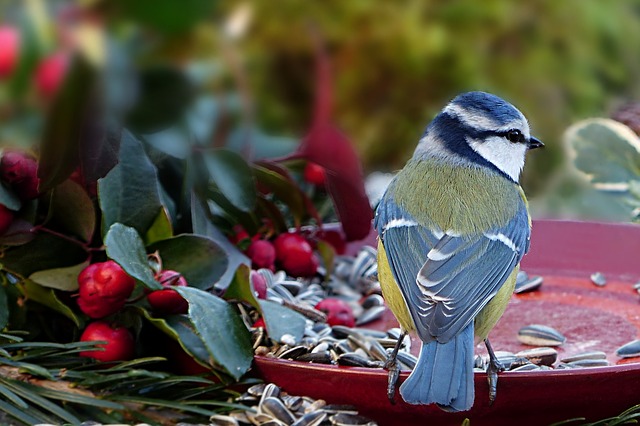
Even if you don’t have to, depending on where you live, you may want to stop feeding birds in the summer. Perhaps you can come up with a few more.
Stop feeding the birds once the spring migration is over.
You can stop feeding birds once the cold and snowy winter weather has gone. At this moment, many people come to a standstill.
However, we advocate leaving your feeders in place until May or maybe June. It’s likely that your winter guests may stick around until the end of April. There’s also a good reason to keep your feeders up until the summer.
Many seed-eating birds will be traveling through your yard during migration, so it’s best to wait. They’ll be hungry, too.
March and April are the busiest months for sparrow migration. White-crowned Sparrows move north throughout the country in large numbers, followed by White-throated Sparrows in the east and Golden-crowned Sparrows in the west.
Stop Feeding When Only House Finches And House Sparrows Are Left.
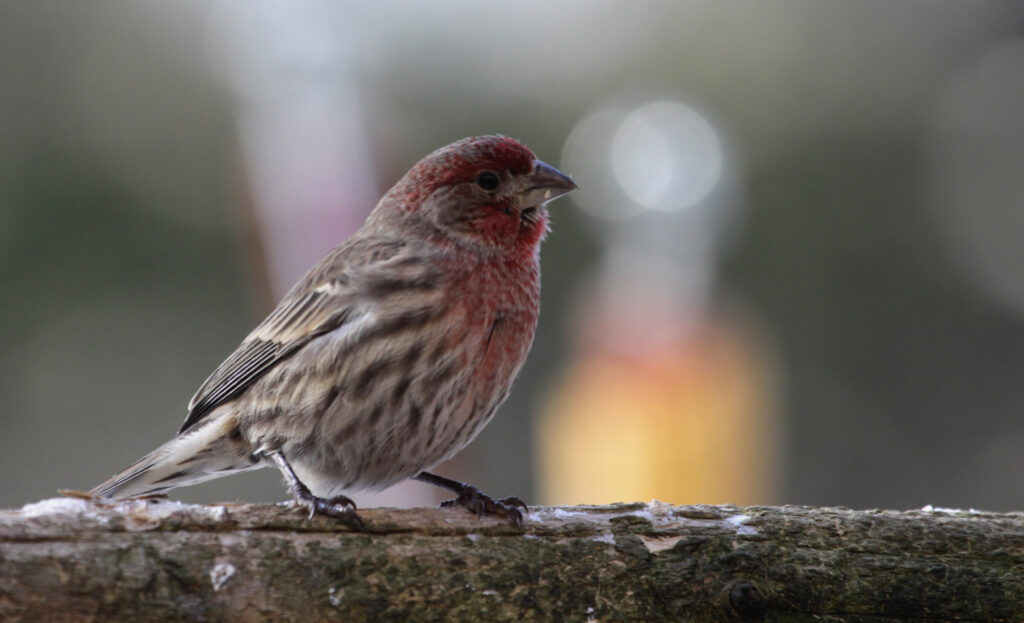
In the summer, there may not be many birds visiting your feeders if you live in the south or in an urban situation. Many seed-eating birds frequent feeders throughout the year in more northern places, though.
In the summer, the resident House Finches and House Sparrows can be your only company. These swarming birds may be noisy and untidy, and they consume a lot of food.
During the nesting season, even the local Mourning Doves can abandon the feeder. You could witness more birds heading back south in September or October. But don’t put off putting up your winter bird feeders too long.
These autumn migrants are on the move, seeking the finest spot to spend the winter.
You will not attract as many birds if you wait until then to set up your feeder. To attract more winter birds, set up your feeders in November.
Stop, If You’ve Had Enough of Feeding Birds.
Yes, feeding the birds may get tiresome in the summer. Stop because it’s all right. You are not required to take any action. Because of it, you are not a bad person. But before you throw in the towel, give this a go.
During this time, clean the feeders. They should be cleaned with soap and water or a bleach solution. Take them out of the room and put them away. Make sure the area beneath the feeders is free of debris.
It’s possible that you’ll have to change your feeders. Make a list of which feeders you enjoyed and which ones you had issues with. Then you may invest in feeders that have attracted the most birds and have shown to be effective.
You may also use this time to consider planting and landscaping with bird-friendly plants and flowers in your yard. However, this does not necessitate the removal of the birdbath. Throughout the summer, water may still attract birds to your yard.
Don’t stop feeding the birds, but experiment with new meals this summer.
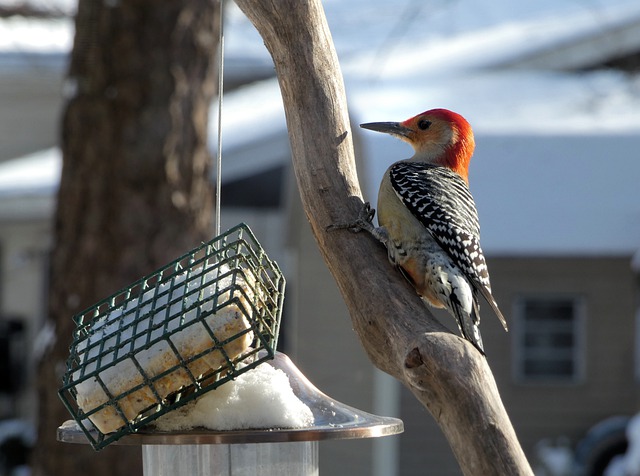
During the summer, you may wish to halt or limit the number of seeds you feed. Experiment with different foods like bananas and mealworms.
If it’s hot outside, relocate your summer feeders to the shade. It may slow the deterioration of meals (particularly fruits and nectar).
In the summer, when the temperature continuously exceeds 80° F, you should stop providing suet. It will rapidly melt and get rotten. In the summer, you may choose to use simply a thistle sock or feeder with Niger seed.
Late summer breeders, the goldfinches even give tiny seeds to their nestlings. As a result, having a dependable source of tiny seeds nearby may be beneficial to them.
Check out this article When to Stop Feeding Birds for Winter for more related information.
Conclusion
Hummingbirds should be fed during the summer. The optimal 20 percent sucrose content observed in hummingbird-friendly blooms is four parts water to one part sugar.
You should be able to attract at least one species of a hummingbird to your feeders no matter where you reside in the United States.
In the summer, you may hang special oriole nectar feeders. These are sometimes eaten by woodpeckers. It’s entirely up to you when and whether you stop feeding birds in the summer.
FAQ
Do birds stop eating from feeders during the summer?
It’s not true that birds don’t need to be fed in the summer, but because many of them are busy raising their young, they will appreciate any additional goodies. Little and frequently is recommended by the RSPB, which also claims that birds will not consume as much as they do during the colder months.
Is it necessary to feed garden birds all year?
Although birds gain the most from winter feeding, food shortages can arise at any time of year. You’ll give them a higher chance of surviving food shortages if you feed them throughout the year.
Last Updated on March 22, 2023 by Lily Aldrin
